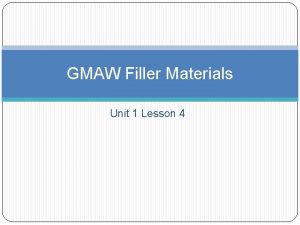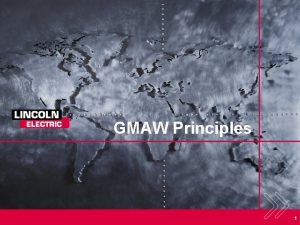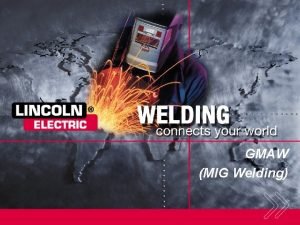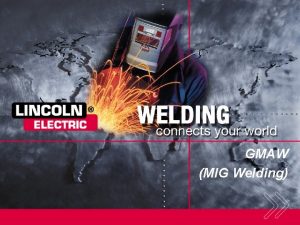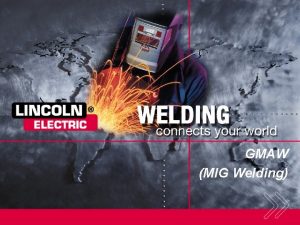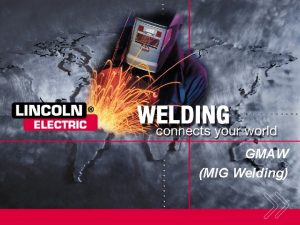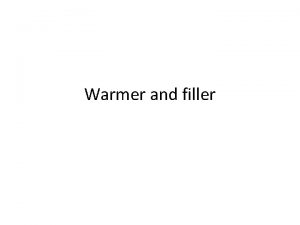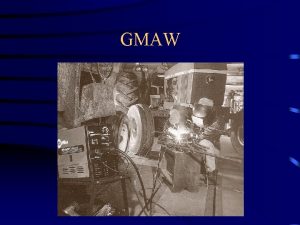GMAW Filler Materials Unit 1 Lesson 4 GMAW








- Slides: 8

GMAW Filler Materials Unit 1 Lesson 4

GMAW filler material Selection of the material that is to be manufactured into filler wire for GMAW is based on several factors: �Chemical composition �Mechanical properties �Notch toughness values �Impurity level limits

GMAW filler material Manufactures make filler material for 3 major areas: � General Use- This material will meet requirements of specifications but no records of composition or strength level is furnished. � Rigid Control Use- Used in the fabrication of products that require control over the filler material. May require a Certificate of Conformance, a document that certifies that the material meets all required specifications. � Critical Use- Used in welding operations that require very tight control of filler metals chemical composition. Such as the fabrication of aircraft, nuclear reactors, and pressure vessels.

GMAW filler material GMAW wires are manufacture in standards sizes. . 035 and. 045 diameter wires are considered the most commonly used. GMAW wire is wound on spools of plastic, wood, or metal or is coiled inside drums. The 12 inch spool is most common and usually holds about 33 lbs of wire.

GMAW Electrode Classification ERXXS-X E- Electrode R- Rod (also used as designation for GTAW filler). XX- Multiply by 1000 for minimum specified tensile strength S- Solid wire X- Chemical composition Common wire classification for carbon steel. ER 70 S-2 Common wire classification for stainless steel. ER 308 Common wire classification for aluminium- ER 4043

Carbon Steel electrodes All filler metals for carbon steel contain alloying elements such as silicon, manganese, aluminum, and carbon. The purpose for these alloys are: Silicon-. 40% - 1% added to deoxidise the puddle and strengthen the weld. Over 1% can cause weld cracking. Manganese- 1 -2% also deoxidises and strengthens the weld and decreases hot cracking. Aluminum- Small amounts to aid in deoxidising and increases strength. Carbon-. 05%-. 12% adds strength without affecting mechanical properties.

Stainless Steel Electrodes Stainless steel filler metals are available in either a wire reel, flat strips, or in rod form. Filler metals for stainless steel should be selected to closely match the composition of the base material. Stainless fillers also require the use of special shielding gas mixtures. Such as mixes of helium, argon and CO 2.

Aluminum electrodes The most widely used aluminum filler metals are ER 4043 and ER 5356. Aluminum filler metals are designed to weld specific types of aluminum and should be selected for compatibility. Aluminum filler metals usually contain other alloys to increase weld strength.
 Gmaw electrode classification
Gmaw electrode classification Natural materials
Natural materials Materials that useful and harmful
Materials that useful and harmful Natural materials and man made materials
Natural materials and man made materials Adopting and adapting teaching materials
Adopting and adapting teaching materials Direct materials budget with multiple materials
Direct materials budget with multiple materials Corrosion prevention casing filler
Corrosion prevention casing filler Disintegrants used in tablets
Disintegrants used in tablets Jawline fillers injections in dubai
Jawline fillers injections in dubai
